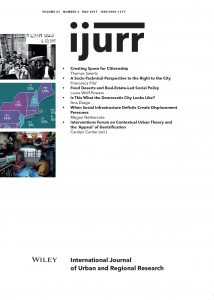Like other concepts, gentrification must be situated in the socio-historical context in which it was produced. Since its coinage the concept has travelled widely, yet it has been applied unevenly, and in some cases uncritically, in various locations now including Asian cities. This essay challenges the application of the concept of gentrification to Hong Kong, as attempted by an article previously published in this journal. It responds through two main lines of inquiry. First, it demonstrates how the absence of historical, geographical and socio-political context weakens the basis for a critical urban geography. Second, in constructing a historical baseline, this essay proposes to conceive urban redevelopment through hegemony-cum-alienation, which is a more complicated process than displacement of the working class. Alienated hegemonic redevelopment perpetuates systemic reproduction and associated power politics, yet with the primary source of contradiction residing in landed and property relations. Conclusions suggest the urgency of developing new approaches instead of relying on more empirical studies as evidence for an already over-developed concept. Analysis of the Hong Kong case suggests how the spent concept of gentrification could be superseded by alternatives.

